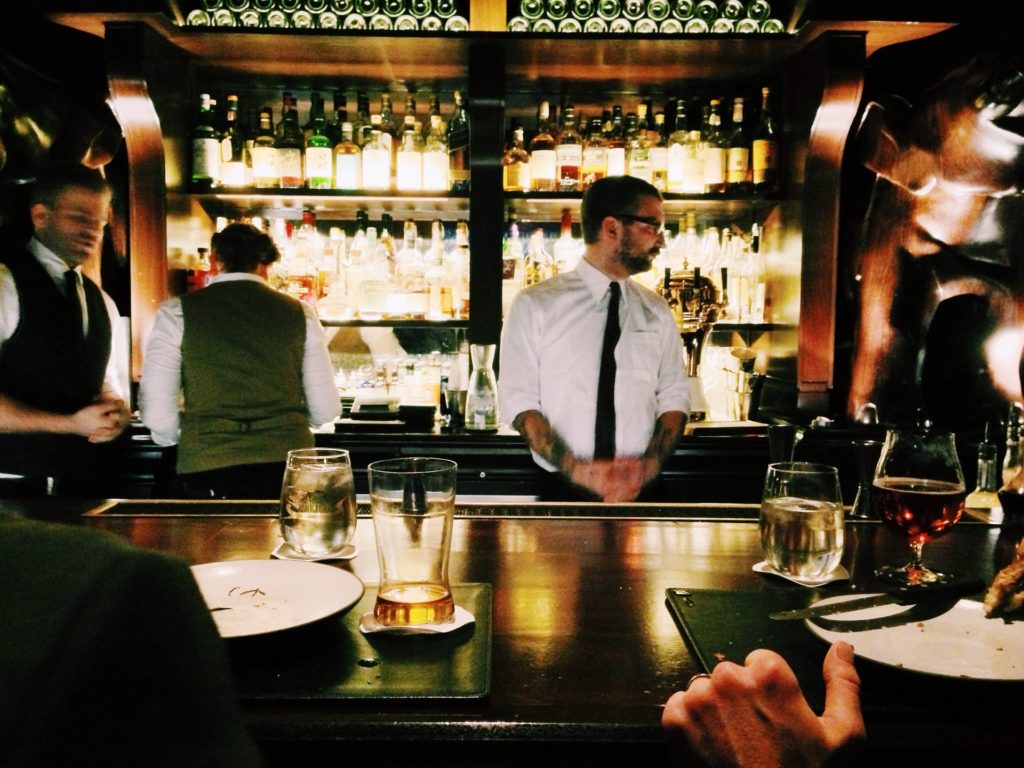Time out?
This week has been a real treat for me – because not once, but twice, I’ve had the pleasure of attending live theatrical productions. When I win the lottery (which will be a particularly amazing day, because I haven’t bought a ticket for years), and no longer have to work and have loads of disposable income, my basic plan is to go to the theatre – for opera, musicals, dance and straight plays – at least once a week. Alas, until then, my general resources of time and money and skill at juggling concert and theatrical events guides are not sufficiently great to get to see plays very often. So it’s been fantastic.
First up, on Wednesday, was Woyzeck at the Old Vic. And then yesterday, both parts of Harry Potter and the Cursed Child at the Palace Theatre. How amazing is that? And they were, in different ways, both absolutely wonderful. But I’m not here to review them, neither would I dare spoil the secrets of the Wizarding World when all attendees are asked (and indeed given badges to this effect) to Keep The Secrets. No, what I’m interested in, given this week of theatrical riches, is an article that I subsequently read today in the Guardian, reporting on Steven Moffat’s desire that we scrap intervals in live performances. And I quote: ‘[The interval’s] a stupid idea that spoils the evening… When they stop the show and give you the worst red wine you have ever drunk in a crowd of people who just want the show to keep going. I don’t think you should have them.’

Hmmm. Well, let’s overlook the fact that I was at a matinee of Woyzeck. Let’s see. What did I do in the interval? Actually I stayed in my seat, read the bits of the programme I hadn’t had time to read before, eavesdropped on the conversations going on around me and their assessments of the show so far (I was there on my own), drank some water and took a minute to think about how I felt about what I’d just seen and what I expected was to come. When the show ended, even though I knew how it would end thanks to Berg and Büchner, I sat in tearful shock for a moment or two, made my way out of the theatre as quickly as I could, and sat quietly for a bit trying to put my thoughts and emotions in order. Shows that smack you repeatedly around the head – legitimately, given their subject matter – tend to do that.
But that’s not representative, is it, because I should have been with other people and opted for bad wine. OK, let’s try Harry Potter. Two shows in one day. Went with three other people, so that gets me out of the anomalous loner box. What did we do? Interval in the first show: talked very excitedly about what we’d seen, ate sweets, tried to figure out how the magic had been so beautifully magicked. Looked around the astonishing interior of the theatre. Wondered what would happen next. Interval in the second show: had a drink, made those people who had seen it before swear not to spoiler us for what was coming up, checked our phones, cooed a bit more over the magic, moved around a bit to get some circulation back. Waited with baited breath to see what would happen next. The time span of the play is considerable, both in our world and on stage, so there’s an amount of processing that needs to go on, even if you’re not just trying to figure out stuff about astonishing wandwork.
This is not helping, is it? Alright, concerts perhaps. No plot to figure out between string quartets, right? Maybe we could ditch the intervals there. Except no, I can’t actually think of a single concert I’ve been to where the interval hasn’t been useful for some reason. Because I need to move around; because I want a drink, or to queue ineffectually for the ladies; because I need a bit of recovery time to think about what I’ve just heard (and/or seen); because I’d like to talk to my friends about it; because it would be useful to read the programme a bit or check the synopsis for what’s coming. In my own humble experiences, intervals are rather useful things. They are also, crucially, a moment where the assembled company is allowed to actually think of itself as an assembled company, and interact with each other – whether that’s profound conversation with the friendly-looking stranger sitting next to you, or standing around moaning at the length of the queue for the ladies. An audience is a community, however short-lived its existence might be. We clap together and boo together, jostle together at the bar regardless of the awfulness of the red wine, and leap to our feet in standing ovations in a wave effect because of each other. If Steven Moffat would like to sit unmoving in the Lilian Baylis circle at the Old Vic for four hours without a break, I wish him much joy. I’d rather leave with functioning lower limbs, without danger of dehydration or incontinence, and having had the opportunity to reflect a little – alone or with others – on how it’s going as it’s going.
And I do wonder: if Harry Potter had been straight through, and if we’d somehow been superhuman enough in our physical requirements and powers of concentration as Mr Moffat seems to think that we should be, would so many people be prepared to Keep those Secrets along with their fellow (unknown, unmoving) audience members? Something tells me that just possibly, the answer is no.
